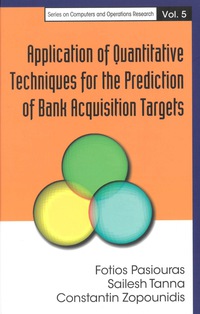Answered step by step
Verified Expert Solution
Question
1 Approved Answer
There are two parts to question 1 (a and b). You are required to answer each part. (The word limit for all of Question 1
- There are two parts to question 1 (a and b). You are required to answer each part. (The word limit for all of Question 1 is 1,400 words)
- To answer the (a) sub-questions that follow you must think about the financial position and financial performance of a small local sole trader that has one owner/manager and no more than 3 full-time employees. If you can, answer the questions in the context of a real business you are aware of. If not, use the example of what you think is the likely financial situation of a small local sole trader.
- i.Give an example of five assets (two non-current and three current) that such a business might own, and which would be recorded in its balance sheet at its accounting year end. Your answer should also explain why each of the five assets should be treated/classified as either a non-current asset or a current asset.
- ii.Give an example of three liabilities (one non-current and two current) that such a business might owe, and which would be recorded in its balance sheet at its accounting year end. Your answer should also explain why such liabilities should be treated/classified as either a non-current liability or a current liability.
- iii.In which section/part of the balance sheet might each item in (i) and (ii) be recorded? (4 marks)
- iv.Construct a likely income statement for the sole trader for the accounting year that ends at the balance sheet date in (i) to (iii) above. Based on whatever knowledge and information you have or can realistically assume, give a reason for each of the sales, cost of sales (if applicable), expenses and net profit or loss figures of the business you have identified. (For example, if you gave the sales figure as 50,000 explain why that amount seems reasonable and based on some evidence or knowledge.
- v.It is extremely unlikely that the profit or loss generated in (iv) above is the same as the increase or decrease in cash over the same period. Give four reasons for such a difference.
- vi.Assume that the sole trader business referred to above has previously only used the same unqualified accountant to submit a tax return to the government tax office. The business owner is now considering employing a qualified accountant to perform the same service. Give two disadvantages and three advantages for such an action.
-
b.
- i.Using your knowledge of Figure 2.1 in Book 1, Chapter 2, as well as your general knowledge of double-entry accounting, give an example of how a specific transaction is captured in the accounting information system as an input, a process and an output.
- ii.Explain the importance of an audit trail in financial accounting. Your answer should include an explanation of why a transaction that is separately and properly recorded as an input, a process and an output, might help to provide a rigorous audit trail.
- iii.An example of a financial accounting statement for a sole trader is a year-end balance sheet that is ready to be submitted to the government tax office. An example of a management accounting statement is a monthly balance sheet that is available on the last day of each month. Compare the two statements. In your comparison be sure to include at least one distinct advantage of each statement
Step by Step Solution
There are 3 Steps involved in it
Step: 1

Get Instant Access to Expert-Tailored Solutions
See step-by-step solutions with expert insights and AI powered tools for academic success
Step: 2

Step: 3

Ace Your Homework with AI
Get the answers you need in no time with our AI-driven, step-by-step assistance
Get Started


